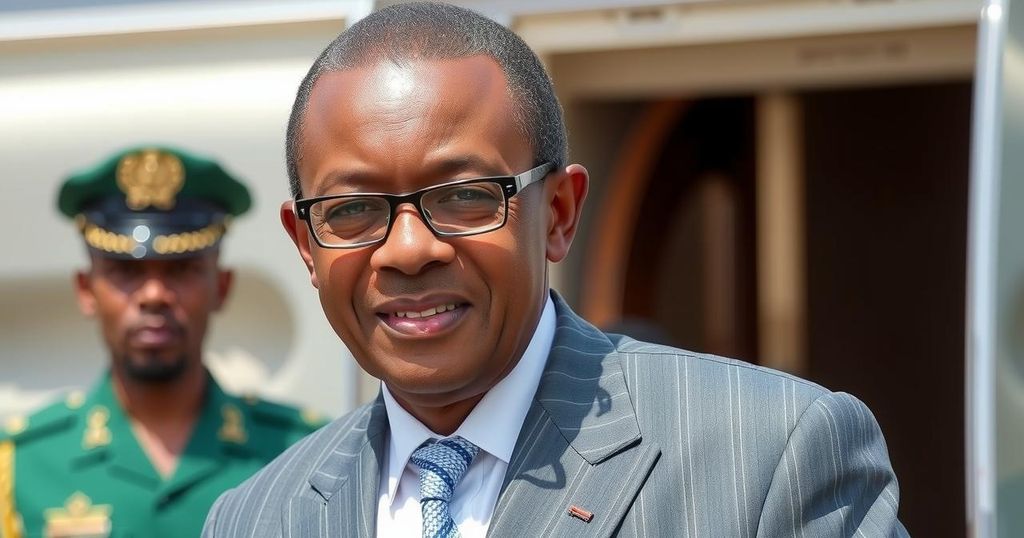Venâncio Mondlane returned to Mozambique declaring himself the rightful president following allegations of electoral fraud in favor of the ruling Frelimo party. His return coincides with a precarious political atmosphere marked by protests, violence, and a struggling economy. The situation underscores a deepening political crisis as the nation prepares for the inauguration of a new president amidst calls for justice and reform.
On Thursday, Venâncio Mondlane, a leader of the opposition in Mozambique, returned to his home country after a prolonged self-imposed exile, boldly declaring his aspiration to assume the presidency. His arrival was met with notable enthusiasm, despite a somewhat muted reception from airport staff. Mondlane has consistently contended that the recent presidential election, in which he allegedly secured only 24 percent of the votes compared to Daniel Chapo’s 65 percent, was marred by significant irregularities orchestrated by corrupt elites.
The timing of Mondlane’s return is critical as Mozambique prepares for the inauguration of a new president from the long-dominant Frelimo party, which has faced intense criticism amid accusations of electoral fraud. This political climate is further complicated by ongoing civil unrest, with protests resulting in the tragic loss of life due to violent police responses, prompting human rights organizations to condemn the government’s actions. Additionally, Mozambique grapples with significant economic challenges, including a housing crisis and escalating debt, all while dealing with a persistent insurgency potentially linked to Islamic State activities. Regional efforts to mediate the political stalemate demonstrate the urgency of addressing these pressing issues.
Mozambique has a tumultuous political history characterized by civil conflict and disputes over electoral legitimacy. The Frelimo party has maintained a stronghold on power since the nation’s independence but has faced increasing scrutiny for its governance and handling of elections. Recent elections have been fraught with allegations of fraud, leading to widespread protests and calls for reform from opposition factions. The current atmosphere is one of instability, with heightened tensions and violence accompanying political disagreements. Furthermore, the country is rich in natural resources, which has not translated into broad economic prosperity, complicating the political landscape further.
In summary, Venâncio Mondlane’s return to Mozambique amidst claims of a stolen election may herald a significant shift in the political landscape. His insistence on addressing alleged corrupt practices by political elites resonates with many disaffected citizens. As Mozambique navigates economic hardships and sociopolitical challenges, Mondlane’s actions may foster further unrest or galvanize movements advocating for transparency and reform. The ensuing weeks will be critical in determining both the stability of the nation and the future direction of its governance.
Original Source: www.nytimes.com






